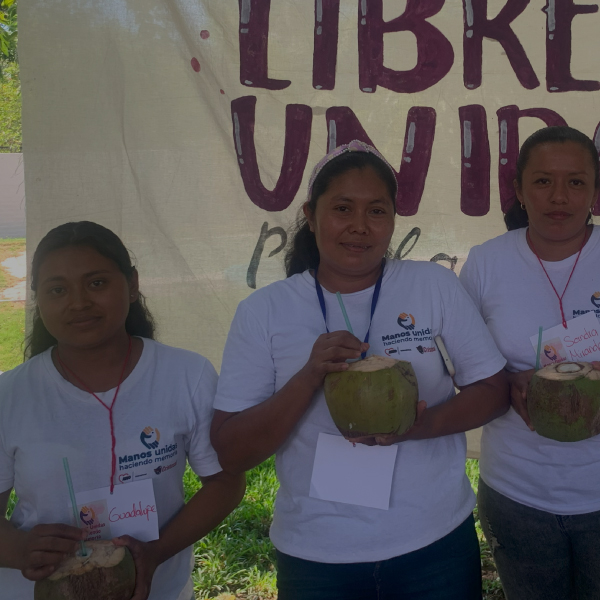
A resistance women
Under the shade of a century-old tree, a group of more than 35 women gather to tell their story, which has been the most difficult and painful of their lives. Among these women is Arely, a young woman who tells how violence forced her and her family to flee their home and the human and material losses caused by this displacement.
“We left for fear of dying, out of fear for our children. They were crying and shouting, ‘mom, let’s go, let’s get out or they will kill us,’” Arely says.
A cousin of Arely’s found out through social media about an organization that understands her suffering and provides support and guidance. That organization was Cristosal. This is when they decided to come together and seek help.
“We had to keep standing up for those who stayed, keep going forward and fight for those who came with us”, says.
Cristosal received this report of forced displacement caused by violence in May 2021. Since then, Cristosal has been providing psychosocial support and helping them find durable, sustainable, solutions. Some time later, through a project funded by AWO, Cristosal began organizing women community leaders who had previously been victims of forced displacement.
“Through Cristosal we participated in workshops, psychological care for how we were feeling, who we were before the trauma we went through, and what we had to overcome. So we created a plan showing where we came from and where we want to go, and how we can achieve it”, Arely says.
With the tools provided by Cristosal and with the motivation fueled by her faith and her community, Arely and her family founded the “Manos Unidas Haciendo Memoria” (Hands Joined in Making Memories), a collective in which they rediscover their strength, abilities and understand the importance of their rights.
“We don’t feel like we did before, we are different. We used to only cry and think about what we had lost, about the material things. But we had something valuable: our lives, our families.”
Many Salvadoran families are still being displaced by the violence both by the state and by the gangs that control the area. But experiences such as that of the Manos Unidas Collective, uphold Cristosal’s commitment to work from and for these communities.
